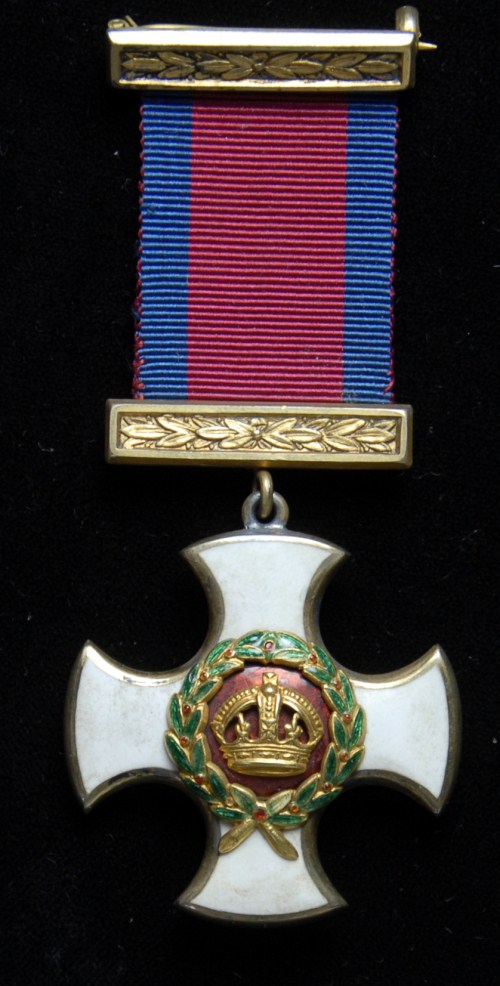
Auction: 11007 - Orders, Decorations, Campaign Medals & Militaria
Lot: 44
A Good Great War 1917 ´Salonika´ D.S.O. Attributed to Captain A.R. Cooper, Worcestershire Regiment Distinguished Service Order, G.V.R., silver-gilt and enamel, with integral top riband bar, extremely fine, in Garrard, London, case of issue, together with a portrait photograph of the recipient, mounted in a glazed frame with a piece of D.S.O. riband; and a commemorative booklet concerning the award of the D.S.O. to Captain A.R. Cooper Estimate £ 800-1,000 D.S.O. London Gazette 26.7.1917 Temp. Capt. Arkwright Richard Cooper, Worc. R. ´For conspicuous gallantry and devotion to duty. [During an attack on the 24th-25th April, 1917, Captain Cooper commanded one of the assaulting companies. The company came under a very heavy barrage during the advance, and was temporarily checked]. He passed through the barrage several times when reorganising his company and was severely wounded in doing so. He remained in command and personally led the assault and did not leave his men until the objective was gained.´ Captain Arkwright Richard Cooper, D.S.O., served with the 11th Battalion, Worcestershire Regiment, during the Great War, and was awarded the D.S.O. for his gallantry during an attack on the Salonika Front. ´The advance began at 9:00pm, when Captain Cooper led his first platoon through heavy barrage to the bottom of Fumeaux Ravine. Being wounded in the face, left shoulder and arm, and ribs, and having many casualties, he rested and reorganized his men under cover until 9:45. Then he went back through the barrage for his second platoon, and brought it down the ravine through a still fiercer barrage. At the head of the men left of the two platoons he reached the Bulgar trench and took it. On mounting the parados on the far side a trench mortar bomb burst at his feet and severely wounded his left leg inside from the knee upwards. He continued to lead his men for further action on the right, then advanced alone to reconnoitre. Whilst using his revolver a 5.9 high explosive shell burst near him. This shattered his right arm, lifted him off the parados, and hurled him right back over the trench (six feet wide) down into the Bulgar wires fifteen yards below. One recovering consciousness he managed with his left hand, which he badly lacerated, to extricate himself, and his right arm which was caught by the wire up behind his back with the hand against the left shoulder. Owing to the darkness he then fell to the bottom of the slope, fifty yards down, among men of the Berkshire Regiment. A tourniquet was applied to his arm, which was put into a sling. Captain Cooper then, at midnight, started off alone to get back to his own trench, and deliver his report for headquarters. Though it was but five hundred yards up the ravine, it was not till 5:00am that he succeeded in struggling to the top, his leg-wounds and exhaustion from other wounds making it so difficult to get up after falling or resting. The barrage was still on, and he was wounded twice more- in the left knee, and then in the right. After attention by a medical officer he was carried to the Casualty Clearing Station, and thence to the 4th Canadian General Hospital at Salonika, which was not reached till 29th April. During this action he passed through the barrage no fewer than six times, and had one hundred and thirty casualties among the one hundred and forty-six men of his company.´ (Account in commemorative booklet refers). Captain Cooper was for eleven weeks in the Salonika Hospital on a supporting bed, unable to lie down or turn on his side, and underwent three serious operations. While in bed General Milne, C.B., Commander-in-Chief, British Salonika Force, personally pinned the D.S.O. riband on to his bed-jacket.
Sold for
£700




